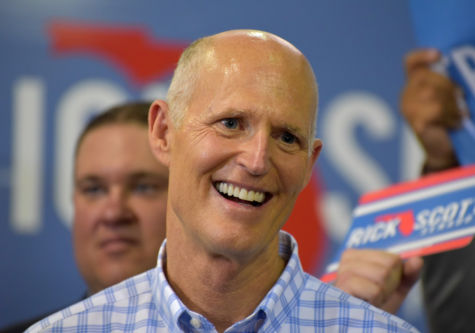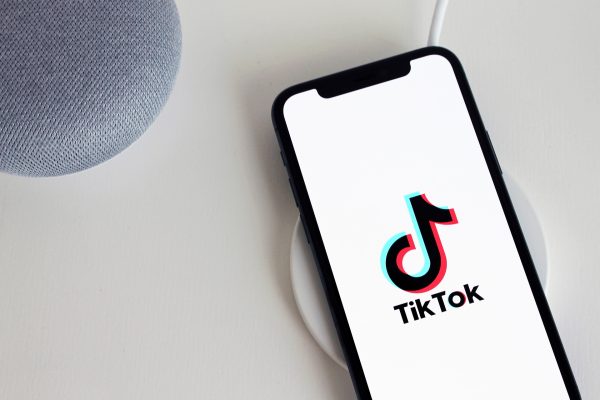Controversy Once Again Swirls Around Florida’s Midterm Elections
Photo courtesy of www.vox.com.
Former U.S. Representative Ron DeSantis won Florida’s gubernatorial race this year, narrowly defeating Andrew Gillum, the Florida Democratic Party’s first African-American candidate for governor.
Politics have always been unpredictable. This year’s Florida midterm election proved that point. Initially, both the gubernatorial and senatorial elections seemed to have the respective Republican candidates, Ron DeSantis, and Rick Scott, winning. These two races were the highest profile races in the state, and both resulted in lengthy recounts. The senatorial race between Governor Rick Scott and Senator Bill Nelson was extremely close. Nelson was Florida’s incumbent senator, a position he held since 2015. Prior to that, he was a member of the Florida House of Representatives, and then the United States House of Representatives. Scott was the state’s governor since 2011.

Despite a close race, former U.S. Senator Bill Nelson lost the 2018 election for the Florida Senate.
On election night, the results were too close to call as the difference between the candidates was less than 0.2%. Per the Florida legislature, because the difference in votes was less than 0.5%, the result was an electronic recount. After the results of that recount, it was still too close to call with less than a 0.2% difference. Because the margin was less than 0.25%, a manual recount had to be exercised.
Finally, 12 days after the election, Scott was declared the winner. He won with 4,099,505 votes, which was 50.1% of the total vote. Nelson received 4,089,472 votes, or 49.9% of the vote, losing by only 0.2%.
A similar thing happened in the gubernatorial race between Democrat Andrew Gillum and Republican Ron DeSantis. Gillum, the mayor of Tallahassee, would have been the first African-American governor of Florida. DeSantis, a representative in the United States Congress, also had to wait, like Scott, to celebrate his political victory.
The results were closer than 0.5% in this race as well, resulting in an electronic recount. But after the electronic recount, it was clear that DeSantis had won, but by a narrow margin. DeSantis won with 49.6% of all the votes. Gillum received 49.2% of all the votes, losing only by 0.4%. Even though he lost, Gillum said that he would not be going anywhere and was committed to fighting for Florida, meaning he may run again in the near future.
One of the reasons for the recounts was the controversy surrounding votes and vote counting in the Broward County and Palm Beach County elections. The initial vote count was very slow, and the results of the electronic recount in Palm Beach County were submitted three minutes after the deadline, making them invalid. Plus, there were also claims of fraudulent voting. Governor Scott called this a liberal scam and filed a lawsuit against Palm Beach and Broward Counties. “I think, what we all can understand from this, no matter what side of the aisle you come from, is that there are obviously some big problems [with] how we vote in Florida,” said Mr. Nathan Ginnetty, middle school English teacher.

Rick Scott, former Florida governor, ultimately won the Senate election after two recounts.
This has not been the first time an election has come down to results in Palm Beach or Broward County as the voting process has been broken in Florida for at least 18 years. In the 2000 Presidential election between George W. Bush and Al Gore, the deciding votes came from those counties amidst allegations of fraud and issues with the paper voting system (hanging chads). According to www.definitions.uslegal.com, “a chad is a tiny bit of paper that is punched from a ballot using a punch-type mechanical voting machine. When there is a hanging chad, that vote may not be counted correctly.”
Florida has always been a swing state, often with close races full of controversy. This midterm election was no exception with both races coming within .4%. The fact that the senatorial and gubernatorial races went to the Republican party helped give the party control of the Senate (although the Democrats now control the House of Representatives thanks to several key congressional wins across the country), and Florida is now governed by a conservative in DeSantis.
Many people have different opinions about fixing the voting problems in Palm Beach and Broward Counties. One idea is to get new equipment because some of the voting machines are old and overheat, which resulted in delays while volunteers waited for them to cool down.
“I would get new and more machines so that they wouldn’t overheat or be as slow,” said seventh-grader Logan Smith. This seems to be a logical solution, but we’ll see if it’s fixed when the next elections roll around in 2020.
“I feel that clearly marking ballots would help make it easier for people to not miss a thing they want to vote for,” stated seventh-grader Claire Dinh, referring to the issue of ballots having confusing or easy-to-miss information printed on them.
There have also been suggestions that people should have the choice to vote via text or email to encourage more people to vote. This, however, may create more vulnerability in regard to hacking or fraudulent voting. “I think that voters should not be able to vote using text or email because someone could use someone else’s information instead of their own,” said Smith.
This midterm election in Florida was a wild one. Miscounted votes, lawsuits, and botched recounts all contributed to the controversy which overshadowed the close races and candidates’ platforms. Will South Florida be able to able to resurrect its fraudulent, incompetent image when it comes to elections? Only time will tell.





